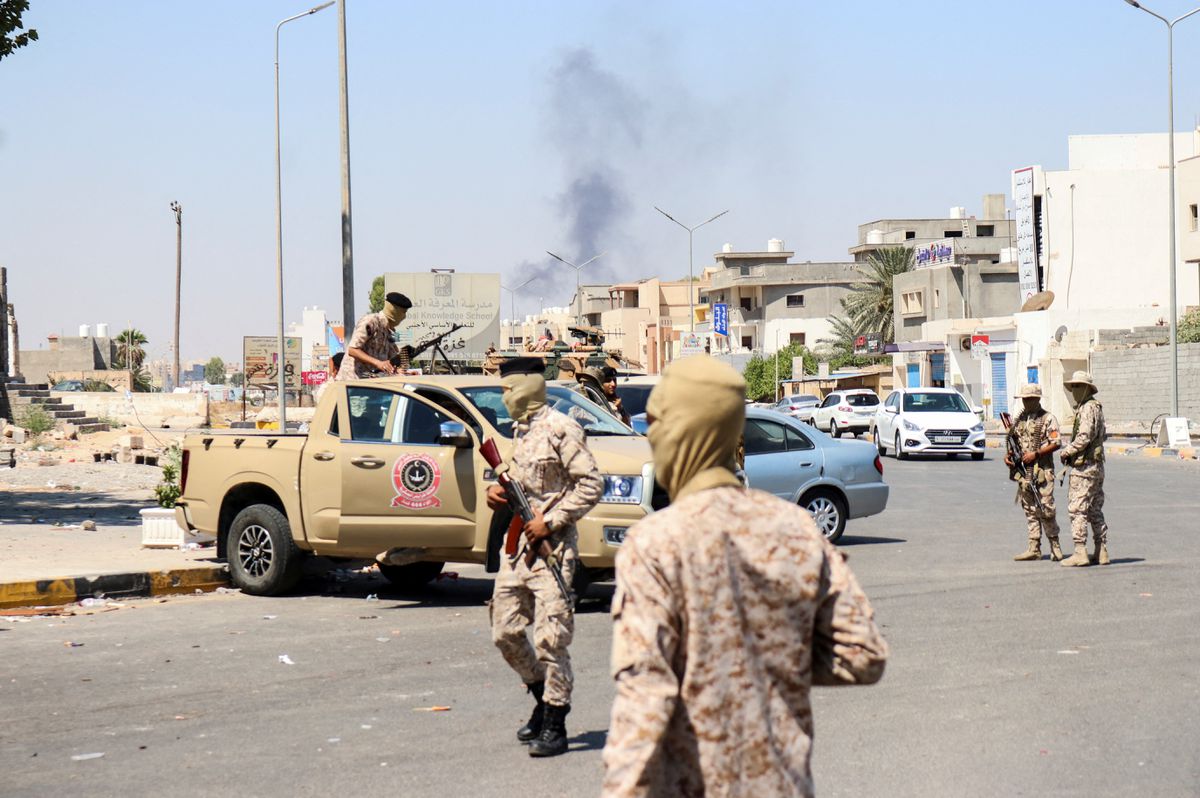NATIONAL SECURITY ISSUES
- U.S. Special Envoy and Ambassador to Libya Richard Norland said clashes in Misrata demonstrate the dangerous prospect that the recent violence will escalate. “The United States urges all political actors and their supporters among armed groups to stand down in order to avoid escalation and further loss of life,” US Embassy in Libya quoted Norland. “Armed efforts either to test or to defend the political status quo risk bringing Libya back to an era its citizens thought had been left behind. Those responsible for such a scenario will be held accountable,” Norland pointed out.
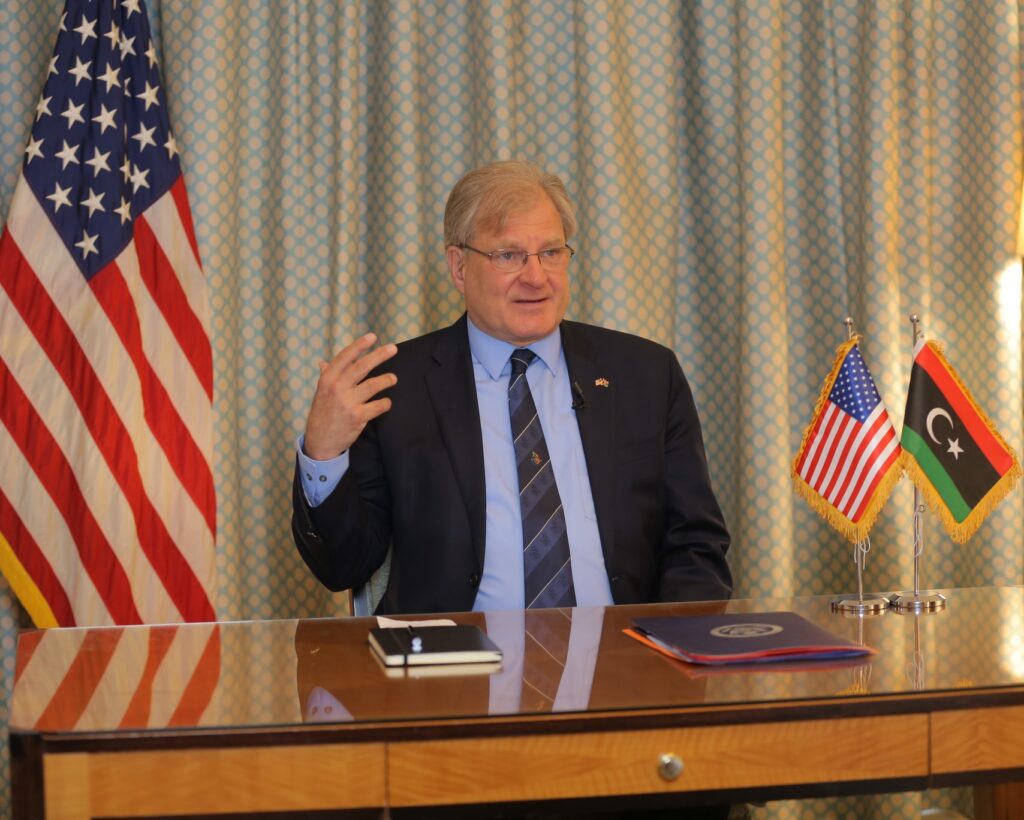
-
Almost 700 migrants, including five dead bodies, were rescued on Saturday (July 23) off the southern coast of Italy, a coastguard statement said on Sunday (July 24), as flows of migrants crossing the Mediterranean increase during favourable sea conditions. Most of the 674 migrants were found on a fishing boat 124 miles off the coast of Calabria, the boot of Italy. Others were rescued in the water. Search and rescue operations were carried out by a merchant vessel and Italy’s coastguard and finance police. The migrants were transferred to port cities in Sicily and Calabria on Sunday morning, the statement added. The five dead bodies were brought to the morgue in the hospital of the Sicilian city of Messina.
-
On Saturday, July 23, German NGO search and rescue ship Sea-Watch rescued over 400 migrants, including several young children and two pregnant woman, travelling on four overcrowded boats. According to Sea-Watch, flat seas and lack of wind have helped arrivals of migrants to the Italian coasts.
- On Sunday morning (July 24), Norwegian-flagged ship Ocean Viking spotted an overcrowded rubber boat in the international waters off the coast of Libya and rescued 87 people, including 57 unaccompanied minors, it said on Twitter.
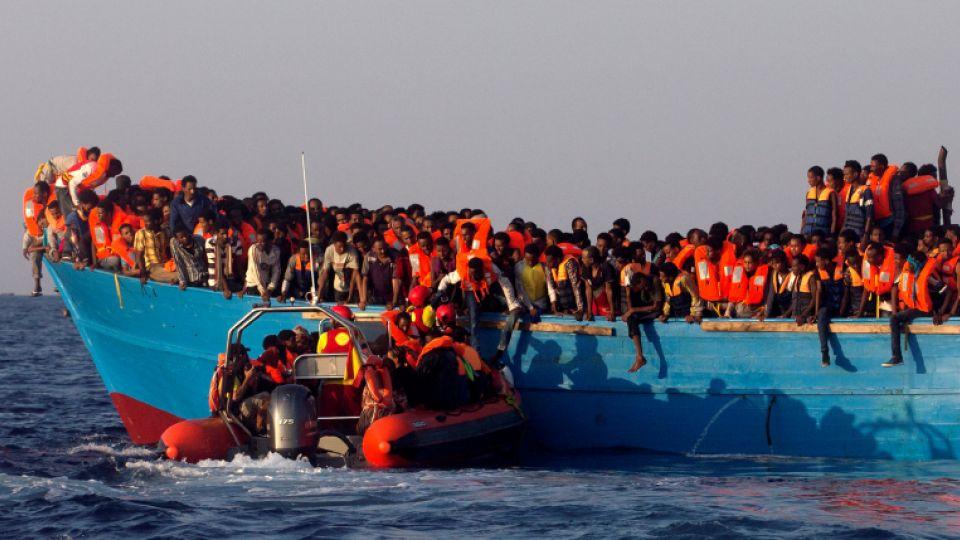
- Following Friday’s (July 22) Tripoli militia clashes, state recognized militias clashed briefly in Misrata to add to tensions in western Libya. The Joint Operations Force (JOF), aligned to caretaker Prime Minister Abd Alhamid Aldabaiba, came under gunfire at an unofficial roadblock at the western entrance of Misrata. They reported injuries. The JOF attributed the attack to the Mahjoub Brigade aligned to the House of Representatives appointed Prime Minister, Fathi Bashagha.
- Abdul Hamid Dbeibeh, premier of the Tripoli-based government, paid a visit on Saturday (July 23) to several individuals who were wounded during the violent clashes that erupted the capital, according to a statement by the government. Dbeibeh’s government did not disclose the name of the hospital which the premier visited nor did it disclose whether those individuals are civilians or fighters. However, it announced that Dbeibeh ordered to have the treatment expenses of all wounded be covered by the government even if some patients’ conditions required hospitalization abroad.
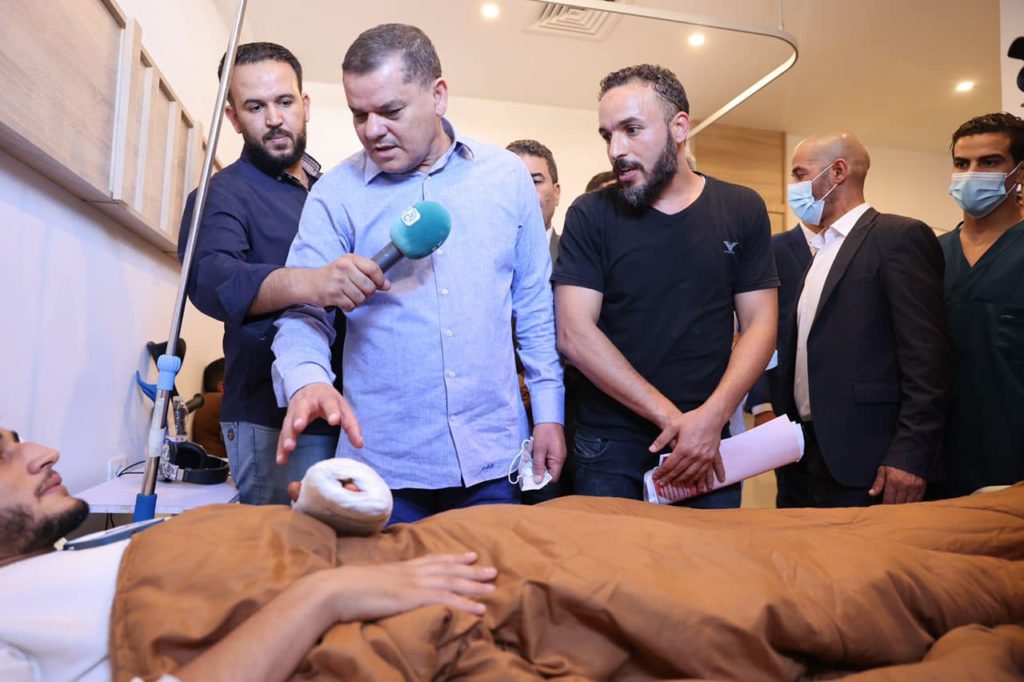
- 16 people were killed and 52 wounded in violent clashes which erupted last Thursday (July 21) between two armed groups in Tripoli, announced the Ministry of Health on Saturday. Fighting took place in the Ain Zara region late on Thursday night between an armed group loyal to the Presidential Council’s and the Special Deterrence Force, also known as RADA. Heavy clashes continued until Friday. No motive for the fighting was immediately apparent, but it is the latest wave of an on-and-off violence to rock the capital as rival militias, each with their own political affiliations, compete for power.
- UN Special Advisor on Libya, Stephanie Williams, said Friday (July 22) fighting between armed groups in Tripoli “must stop now, civilians must be protected and perpetrators held accountable.” “I am outraged about the violence that erupted in Tripoli, which killed and injured multiple people, including women and children at a wedding celebration,” Williams tweeted. “The indiscriminate use of weapons in a heavily populated, urban area without safeguarding civilians is a grave violation of international humanitarian law and a sanctionable offense. This fighting must stop! Civilians must be protected and perpetrators held accountable,” according to the UN Advisor.
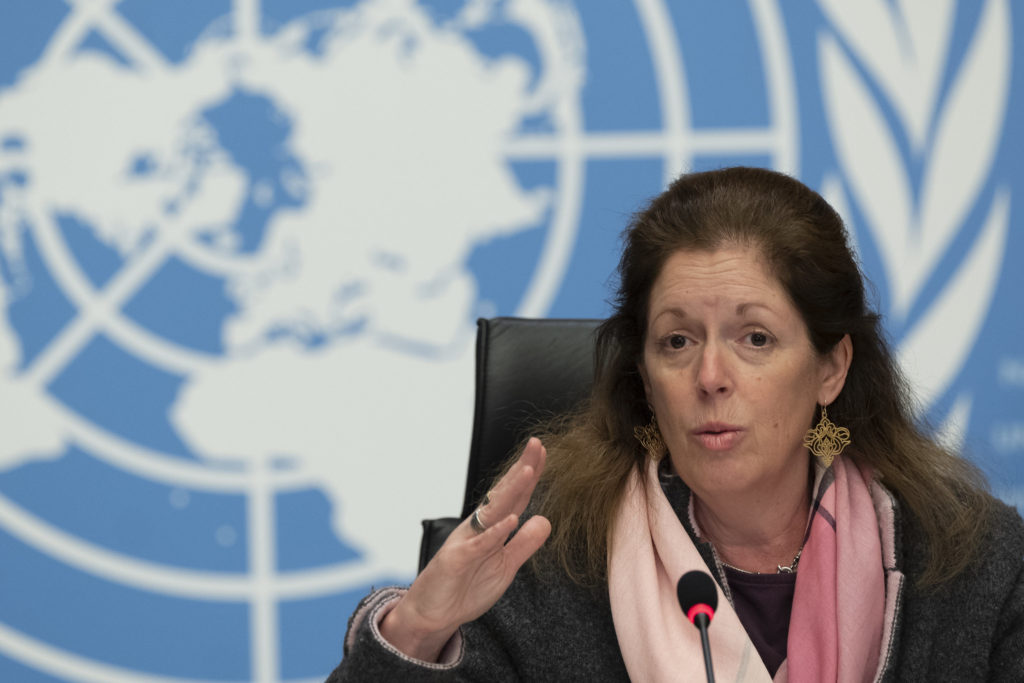
- Three people were killed and two wounded in armed clashes between two armed groups in Tripoli, an official said on Friday, July 22. Fighting took place in the Ain Zara region late on Thursday night between an armed group loyal to the Presidential Council’s and the Special Deterrence Force, also known as RADA. Osama Ali, a spokesman for Libya’s Ambulance and Emergency Services, said casualty figures could rise as reports come in from other hospitals in the area.
- There were militia clashes in central Tripoli that led to civilian deaths, injuries and damage to property, initial reports say. The fighting spread from as far east as Al-Jadaida prison, Sabaa, Ain Zara, Furnaj, Al-Shawk Road and to as central as Zaweet Al-Dahmani. The spokesperson for the Emergency and Ambulance Service, Osama Ali, was quoted by several Libyan media outlets confirming that the number of deaths had reached three civilian deaths, including a young child, in addition to the injury of a woman and her husband. Some property caught fire and some cars were burnt in the crossfire. The clashes were between the Abdelrauf Kara led Special Deterrence Force (SDF/Rada) and the Ayoub Aburas led Tripoli Revolutionary Brigades.
- A fresh batch of 143 stranded Nigerian returnees from Libya, Tuesday (July 19), arrived at the Murtala Muhammed International Airport, Lagos. They were received by the National Emergency Management Agency of Nigeria, NEMA, an agency set up by the Federal Government, responsible for tackling disaster-related issues through the establishment of concrete structures and measures. According to NEMA Director General, Mustapha Ahmed, “The Returnees were brought back to Nigeria through the Cargo Wing of the MMIA, with Al Buraq Air Boeing 737-800 registration number 5A – DMG at about 1518 hours.
-
A Tunisian soldier was killed Monday (July 18) on the country’s southern border during a clash with smugglers trying to transfer vehicles from Libya to Algeria, the Tunisian defence ministry said. “This afternoon, a military patrol operating in the militarised border area of Bourj al-Khadra responded to an attempted entry of six smuggled vehicles,” the ministry said. The vehicle occupants opened fire and the patrol responded, prompting the attackers to flee, with one soldier left dead and another wounded in the shootout, the ministry added.

NATIONAL POLITICS AND SOCIAL ISSUES
- The Libyan Prime Minister, Fathi Bashagha, said Sunday that the great popular movement in support of the Libyan government in the East, South and West gives us hope that “the brave national spirit will triumph over the gang of corruption that thought it could buy home with “haram” money.” Bashagha explained that the Western Region Forum clearly indicates the aspiration of the honorable Libyan people for the establishment of a civil and democratic state. The Libyan government stressed the need to communicate with everyone and in all parts of the country, so that it can implement its goals of holding presidential and legislative elections as soon as possible.
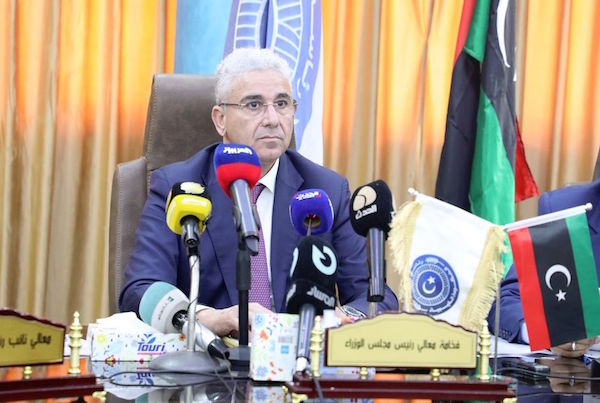
- Chairman of the High Council of State, Khaled Al-Mishri, was urged by U.N. Advisor, Stephanie Williams, to “forge a final agreement quickly” about constitution draft with Speaker of the House of Representatives, Aguila Saleh. This was publicly stated by Williams via Twitter following a meeting with the 55-year-old council chairman in Istanbul. The U.N. diplomat said she briefed Al-Mishri on a letter she received from Saleh, on July 21, about the appointments of sovereign positions. In his latter, Saleh threatened that the parliament will take unilateral action on choosing names for those key positions if the council did not cooperate. Williams said that Al-Mishri believes that this issue needs to be discussed “as part of a package, the key component of which is putting the country back on a firm pathway to elections within a constitutional framework”.
- Libya’s High Council of State will convene on Monday, July 25, to vote on a constitutional draft, the council announced in a brief statement on Wednesday. This comes after the 77th session of the council suspended yesterday (Wednesday, July 20).
- Libya’s House of Representatives will take unilaterally decision on naming leaders for the country’s sovereign institutions after failing to come to an agreement with the High Council of State. In a letter addressed to U.N. Advisor Stephanie Williams, House Speaker Aguila Saleh wrote that the parliament sent files of the candidates to the council as per previous bilateral deal between the two chambers. However, Saleh claims the council was uncommitted to its end of the bargain and did not send back a shortlist of the names proposed by the parliament. The 78-year-old wrote to Williams that having vacancy in some of Libya’s most vital state organizations could lead to spread of corruption and increase of political division. Saleh gave the council a deadline of two weeks to send back a shortlist of candidates.
- Libyan Parliament Speaker Aqila Saleh affirmed that the Parliament did not disrupt the holding of the elections, noting that it did everything necessary for holding the elections. In an interview with al-Massar TV, Saleh said the Parliament issued laws and performed its duties regarding the elections.
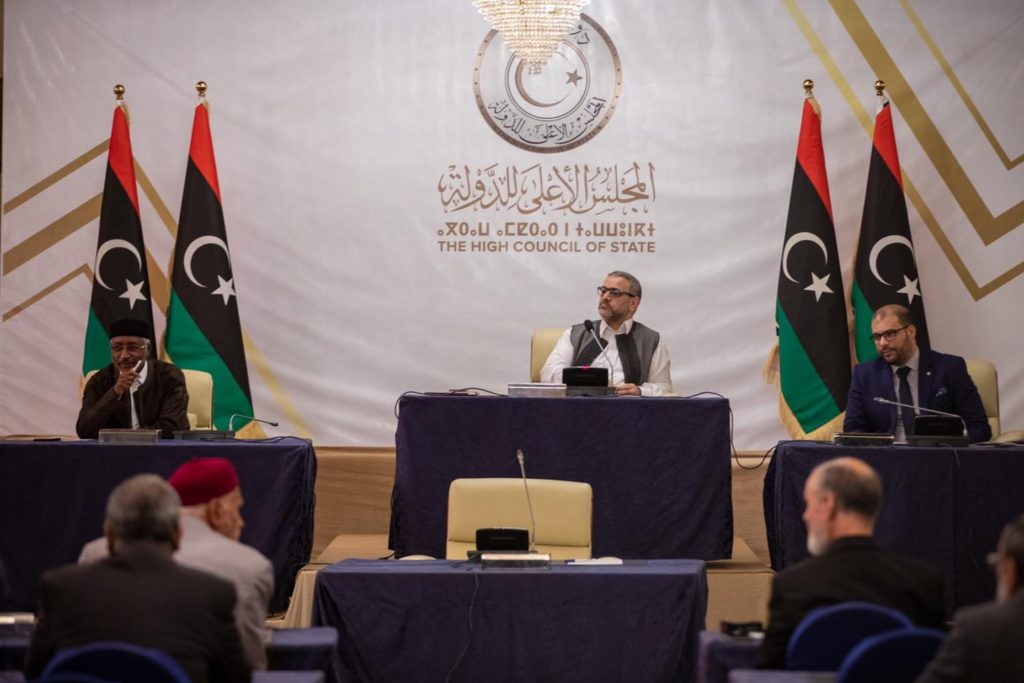
- Chief of General Staff in the Libyan Western Region, Lieutenant-General Mohamed al-Haddad, and Chief of General Staff in the Eastern Region, Lieutenant-General Abdel Razek al-Nadori, said that the two-day meetings in Tripoli came with approval of the country’s political authorities. General al-Haddad said, during the closing statement of the meetings of the military leaders in Tripoli: “We took permission from the President of the Presidential Council, the Minister of Defense, and our colleagues took permission from their leaders in the Eastern Region,” which was supported by General Al-Nadori by saying: “We did not come on our own. Brother al-Haddad came with permission from The Presidential Council, and I came with permission from the Prime Minister, we did not meet on our own, our meeting was based on the political and military leaders.”
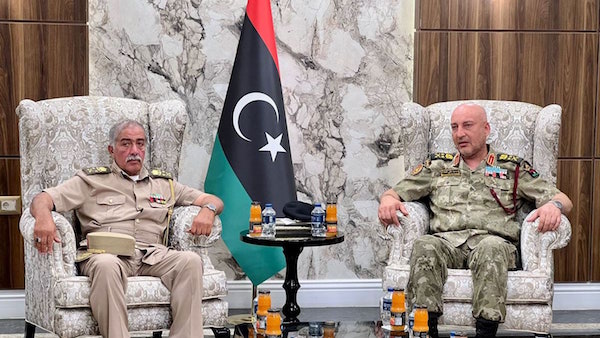
- Outgoing Libyan Prime minister Abdul Hamid Dbeibeh has admitted that he had made a deal to re-form the board of directors of the National Oil Corporation in exchange for solving the problem of the suspension of oil exports, in agreement with all the members of the new council who hail from different regions such as Zintan, Misrata, the South, Benghazi and the Oil Crescent region.
- The High National Election Commission (HNEC) reviewed on Tuesday the security measures organized by the Interior Ministry of the Tripoli-based government to ensure that any future elections are held safely. HNEC chairman, Imad al-Sayeh, arrived at the office of Deputy Interior Minister Faraj Ak’im in Benghazi where they both exchanged views on securing the polls and providing safety for voters, according to a statement by Ak’im’s office.
INTERNATIONAL RELATIONS
- Spokesman for the government of Abdul Hamid Dbeibeh, Mohammed Hamouda, is expected in Rome on Sunday, July 24, for a press conference dedicated to the stability of the Mediterranean at the Nassirya Hall of the Senate, according to Italian news agency Nova. Nova cited announcement made by Italian Senator Marinella Pacifico, secretary of the Schengen, Europol and Immigration Parliamentary Committee.
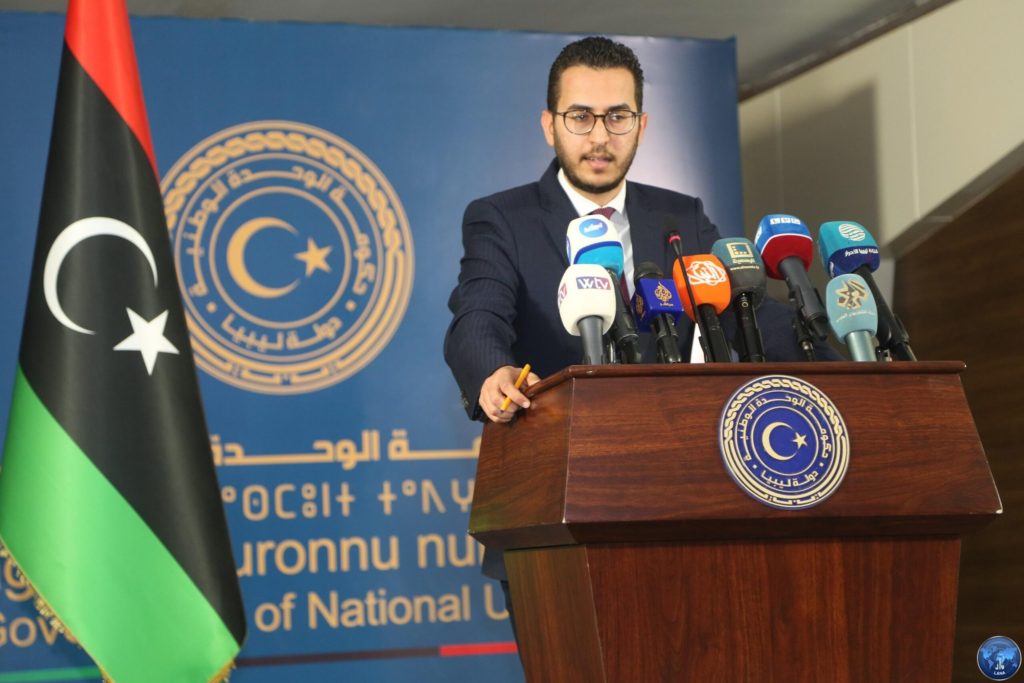
- U.N. Advisor on Libya, Stephanie Williams, revealed she was in Istanbul on Thursday (July 21) for talks about Libya with “senior representatives” from Egypt, France, Germany, Italy, the United Kingdom and the United States, the U.N. diplomat said via Twitter on Saturday. During the meeting, which was hosted by the Turkish government, Williams briefed the diplomats about developments in Libya since June when she mediated elections negotiations between Speaker of the House of Representatives Aguila Saleh and Chairman of the High Council of State Khaled Al-Mishri.
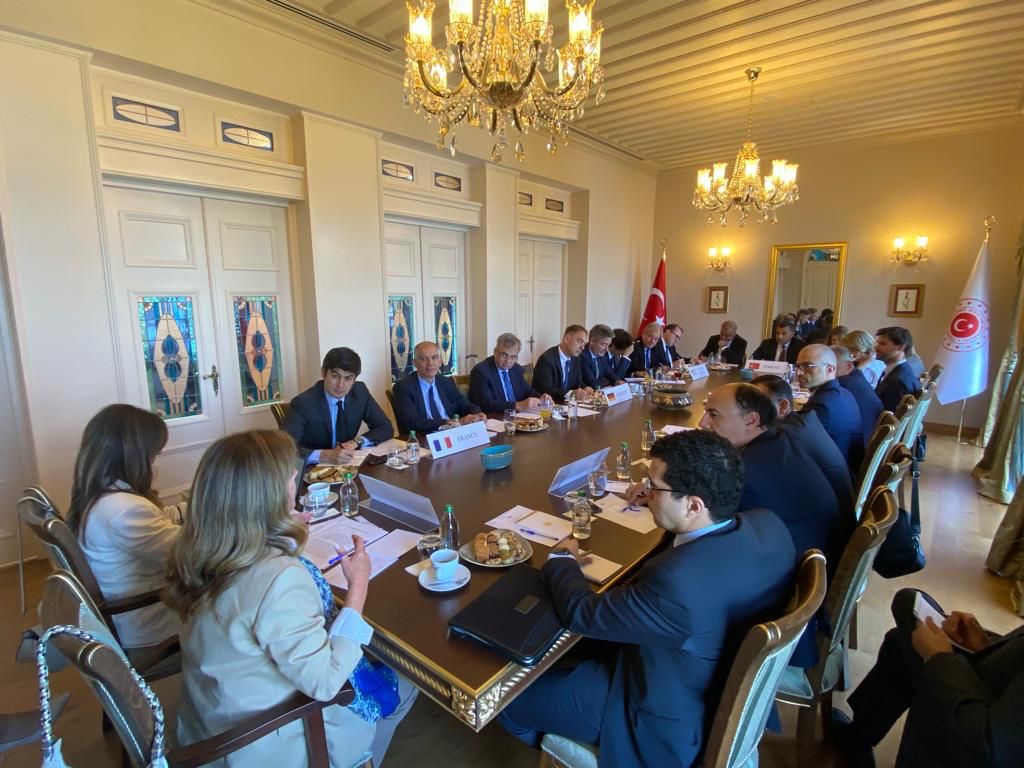
- UN Support Mission in Libyan UNSMIL’s Human Rights and Rule of Law team met with the Abu Salim victims’ association Wednesday (July 20) “to discuss victim-centered transitional justice measures and national calls for accountability for the 1996 mass killing of more than 1,200 detainees in Abu Salim prison in Tripoli,” according to UNSMIL. “Ensuring accountability for this crime against humanity is critical for rights-based national reconciliation and to send a clear message to human rights violators in the fight against impunity in Libya,” the Mission tweeted.
- UN Support Mission in Libya (UNSMIL) has welcomed the meeting of the Libyan military commanders in the East and West in Tripoli on 18 and 19 July. “The United Nations commends this important dialogue and continues to support the security track talks, notably through the Joint Military Commission (JMC 5+5), including on the full implementation of the October 2020 ceasefire agreement,” UNSMIL tweeted.
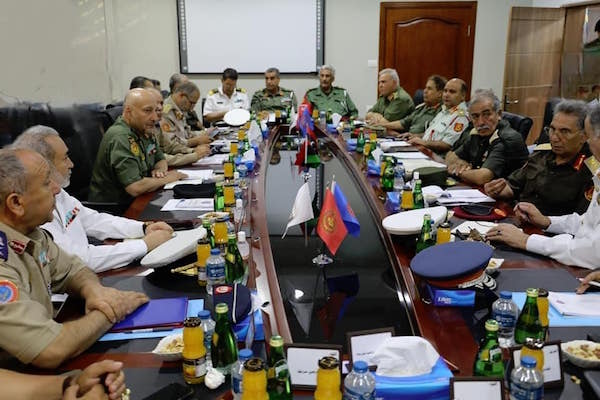
- The 5+5 Joint Military Commission has agreed to name a single commander-in-chief for Libyan military after concluding two-days of talks in Tripoli. The commission, which is composed of military leaders representing rival parties from eastern and western Libya, held a meeting in Tripoli yesterday for the first time since the commission was formed with support from the U.N. Mission in Libya. After two consecutive days of discussion, members of the commission agreed to “proceed with identifying realistic steps for unification of the military institution,” according to a joint statement released by commission. The rival military leaders agreed to name a commander-in-chief who will preside over forces from both sides. They also agreed to form committee to handle exchange of prisoners and cases of missing persons.
- Fathi Bashagha stressed the need for sovereign institutions to spare any form of political conflict during a conversation with U.S. Ambassador Richard Norland on Monday, July 18. According to Bashagha, the two of them agreed that “the use of violence is unacceptable” following concerns that the recent change of the National Oil Corporation’s leadership might ignite violent clashes. Nevertheless, Bashagha and Norland agreed the resumption of oil production by the new NOC management is “in the interest of the Libyan people” while maintaining that “it requires clear and disciplined mechanisms to manage oil revenues in accordance with the law and with pure Libyan national sovereignty.”

